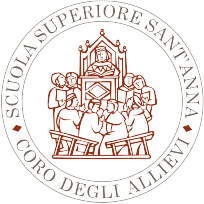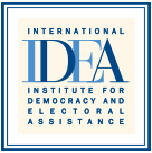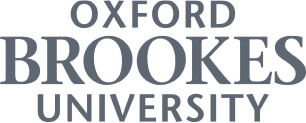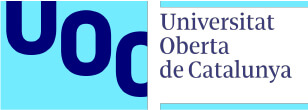UN Photo/Jean-Marc Ferr
The MA in Global Sustainability Leadership, a collaboration between Technological University Dublin and the United Nations Institute for Training and Research (UNITAR), is a transformative educational programme designed to develop leaders capable of addressing the pressing challenges of sustainability, peacebuilding, and conflict resolution.
In today’s rapidly changing world, the impact of climate change, resource depletion, and social inequities demands urgent and informed action. Leaders with specialized skills in sustainability are crucial for navigating and solving these complex challenges. They play pivotal roles in crafting innovative solutions that ensure economic, environmental, and social sustainability. The demand for professionals who can lead such transformative efforts is growing exponentially as organizations worldwide recognize the need to adapt to sustainable practices not only to mitigate risks but also to capitalize on new opportunities presented by a green economy.
This MA in Global Sustainability Leadership is uniquely positioned to meet these needs by providing rigorous academic training, practical insights, and global networking opportunities. This programme is not just about acquiring knowledge; it’s about applying it to make a real-world impact, leading change, and creating a future where sustainable development is a reality for all. Join us to become part of the next generation of leaders who will shape a sustainable future, addressing the needs of the planet while ensuring prosperity and peace for its inhabitants.
The MA in Global Sustainability Leadership, a collaboration between Technological University Dublin and the United Nations Institute for Training and Research (UNITAR), is a transformative educational program designed to develop leaders capable of addressing the pressing challenges of sustainability, peacebuilding, and conflict resolution.
In today’s rapidly changing world, the impact of climate change, resource depletion, and social inequities demands urgent and informed action. Leaders with specialized skills in sustainability are crucial for navigating and solving these complex challenges. They play pivotal roles in crafting innovative solutions that ensure economic, environmental, and social sustainability. The demand for professionals who can lead such transformative efforts is growing exponentially as organizations worldwide recognize the need to adapt to sustainable practices not only to mitigate risks but also to capitalize on new opportunities presented by a green economy.
This MA in Global Sustainability Leadership is uniquely positioned to meet these needs by providing rigorous academic training, practical insights, and global networking opportunities. This program is not just about acquiring knowledge; it’s about applying it to make a real-world impact, leading change, and creating a future where sustainable development is a reality for all. Join us to become part of the next generation of leaders who will shape a sustainable future, addressing the needs of the planet while ensuring prosperity and peace for its inhabitants.
This is a fully online programme spanning 90 ECTS credits. An ECT credit is equivalent to 25 hours of student work.
Completion time:
2 years
(4 semesters)
Completion time:
1 year
(2 semesters)
Do you have any questions about this programme?
Applications are open throughout the year and students are accepted on a rolling basis. However, deadlines exist to be considered for a specific semester.
Apply Before:
Semester Start:
Curriculum
- First Semester (PG + MA)
- Sustainable Economic Development
- Sustainability Leadership
- Entrepreneurial Thinking for Cultural Transformation & Power Balance
- Innovation, Change and Value Creation
- Second Semester (PG + MA)
- Entrepreneurship in Conflict & Peace
- Critical Thinking, Creativity, Imagination & Perspectives
- Virtual Peacebuilding
- Responsible Innovation & Climate Activism
- Third Semester (MA)
- Geopolitics and the Global Economy
- Systems Thinking and Behavioural Change
- Analytics for decision making and impact
- Social Innovation & Entrepreneurship
- Fourth Semester (MA)
- Digital Entrepreneurship & Transformation
- Emotional Intelligence, Mental Health & Wellbeing for Leadership
- Leadership for Resolution, Peace building & Sustainability
- Professional and Personal Development & Reflection
Capstone Elements (MA)
- Applied Research Project
- Research Methods
- Summit & Showcase
Frequently Asked Questions
This programme is ideal for:
- Professionals in Complex Settings: Enhance your ability to lead and manage sustainability solutions in international, regional, governmental, or non-governmental organizations. Benefit from advanced skills that allow you to effectively navigate and resolve complex sustainability challenges.
- UN System and International Organization Employees: Specifically designed for employees within the UN system and other international entities, this programme enhances your capacity to spearhead sustainability initiatives and make strategic decisions that impact global frameworks.
- Business Leaders and Entrepreneurs: As current or aspiring leaders in the business world, integrating sustainable practices into your strategic operations not only advances your career but also drives your company’s sustainability agenda forward. Learn to implement cutting-edge sustainable solutions that increase operational efficiency, improve your company’s bottom line, and enhance its reputation in corporate responsibility.
- Graduate Students and Researchers: Expand your academic horizons and apply your skills in high-level discussions and practical applications of sustainability and leadership. The programme prepares you for challenges in both academia and real-world settings, enhancing your qualifications for high-impact roles.
Benefits to Individuals
- Career Advancement: Equip yourself with the leadership skills and credentials to assume higher roles within any organization or sector. This course increases your marketability and prepares you for significant roles in sustainability.
- Skill Enhancement: Acquire a comprehensive understanding of sustainable practices, critical thinking, and problem-solving skills that set you apart in the professional world.
- Network Growth: Connect with a global community of professionals, experts, and leaders through the UNITAR partnership, expanding your professional network and opportunities for collaboration.
Benefits to Organizations
- Develop Leaders: Encourage a culture of innovation and proactive problem-solving as employees apply fresh sustainability insights and strategies learned from this course.
- Operational Efficiency: Implement state-of-the-art sustainability practices that enhance operational efficiency and sustainability, reducing costs and boosting your company’s performance.
- Enhanced Reputation: Train your team to lead in sustainability, supporting compliance with global standards and boosting your organization’s reputation as a leader in corporate responsibility.
Graduates of the MA in Global Sustainability Leadership will be able to:
- Drive Sustainability Across Sectors: Apply sustainability principles to influence policy and corporate strategies, enhancing environmental, social, and economic outcomes.
- Lead in Sustainability and Conflict Resolution: Take on leadership roles requiring complex problem-solving in peacebuilding and conflict management, promoting sustainable development.
- Champion the UN Sustainable Development Goals (SDGs): Integrate and promote the SDGs within various organizational frameworks to achieve targeted global impacts.
- Develop Critical Thinking and Collaborative Skills: Enhance analytical and collaborative skills to address sustainability challenges effectively and foster stakeholder consensus.
- Evaluate Organizational Sustainability Practices: Critically assess and improve organizational sustainability practices and strategies.
- Implement Ethical Leadership: Lead with integrity, making decisions that align with ethical standards and sustainability goals.
This MA in Global Sustainability Leadership at TU Dublin is a comprehensive two-year programme designed to cultivate leaders equipped to address global sustainability challenges. This fully online course spans 90 ECTS credits, focusing on core competencies in sustainability, leadership, and innovation.
- Year One
- Semester 1 and 2: Students undertake core modules in Sustainable Economic Development, Sustainability Leadership, Entrepreneurship in Conflict and Peace, and Critical Thinking, Creativity, Imagination, and Perspectives.
- Year Two
- Semester 3 and 4: Continuation of advanced modules including optional electives and continuation of core themes. Students engage in intensive learning sessions, tackling both theoretical and practical aspects of sustainability.
- Capstone Project: In the final semester, students are required to complete an Applied Research Project that integrates the knowledge acquired throughout the course. This project is designed to demonstrate their comprehensive understanding and ability to apply their learning in real-world scenarios.
The delivery of the course is structured to provide maximum flexibility and engagement, catering to the diverse needs of our global student body. Here’s how we ensure that our delivery aligns with your professional and personal commitments:
- Fully Online and Flexible: Our programme is delivered entirely online, designed to fit your schedule. You can access course materials, including lectures, readings, and assignments, whenever it suits you best, making it ideal for professionals managing career and family responsibilities.?
- Interactive Learning Platforms: Using our advanced Virtual Learning Environment (VLE), Brightspace, we offer a blend of high-quality pre-recorded lecture videos and live sessions. This mix ensures that you receive an educational experience that is both flexible and engaging.
- Live and On-Demand Access: Choose to attend live seminars and guest lectures for real-time interaction or utilize the recorded versions for later review. This flexibility ensures that you can engage with the course content actively or passively, depending on your availability.
- Rich Interactive Components: Our course includes moderated discussion forums where you can engage with peers and instructors. These forums are designed to foster a vibrant learning community, enabling you to share insights, ask questions, and discuss real-world applications of course concepts.
- Scheduled Reviews and Assessments: Each semester includes a structured timeline that integrates teaching weeks and assessment periods. Lectures run from Week 1 to Week 12, with a reading week in Week 7 to provide you with time to reflect and catch up. Assessments are carefully scheduled to give you ample time to prepare, ensuring that you can perform to the best of your abilities.
By enrolling in our programme, you join a community of learners who are flexible, engaged, and committed to making a significant impact in the fields of sustainability and leadership. The schedule is crafted to allow you to learn at your own pace while staying connected with a global network of professionals.
The tuition fee for the full programme is €15,000. For more information on the costs, payments, or any related questions please check the following pages on TU Dublin’s website:
- Students Must Have Completed an Undergraduate Degree: Candidates applying for the Postgraduate Certificate must hold a minimum second-class honors degree (2.2) or higher or equivalent third level qualification in any discipline.
- Proficiency in English: Applicants whose first language is not English must attach a certified qualification of proficiency in English as the programme is conducted through the medium of English. International students who have studied their undergraduate programme entirely through the medium of English may be exempt from the minimum English Proficiency requirement when applying for postgraduate programmes at TU Dublin. However, this is dependent on the International Student Office receiving certified documentation confirming that the undergraduate programme was studied through the medium of English. This certified documentation should be from the third level Institution where the applicant graduated with his/her undergraduate degree. However, TU Dublin may request that the applicant present an English Proficiency qualification if the International Student Officer is not satisfied with the applicant’s level of English.
Applicants not meeting the normal entry requirements but with relevant prior experiential learning may be proposed by the Programme Coordinator for exceptional entry by submitting an Exceptional Entry application to the sub-committee of Faculty Board.
To be considered for the programme apply before: September 2025. Starting on October 2025.
Applications received after the final deadline are evaluated case by case on a rolling basis.
The Project Coordinator is available to help students during the application process. Learners are encouraged to email the Programme Coordinator at elearning.ptp@unitar.org with any questions.
- Apply Online – PART TIME NON-EU SEPTEMBER START
- Apply Online – PART TIME EU SEPTEMBER START
Testimonial
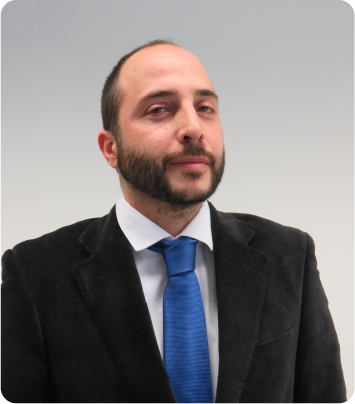
Dr. Daniel Rajmil, CPS ProgrammeDirector,
Universitat Oberta de
Catalunya



